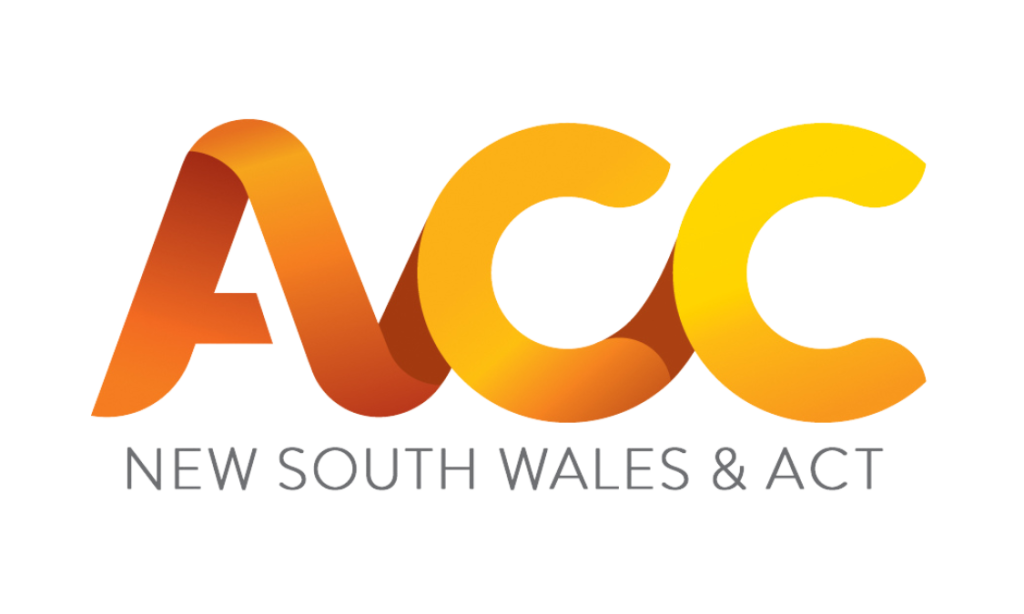Discover the foundations of faith and how it relates to one's worldview and purpose. Students will explore the Christian story from Scripture and express ideas of their own faith, examine how faith shapes views on the meaning and purpose of life, the value of humanity and ideas of human flourishing. Expand your perspective in this core subject and understand the significance of faith in all areas of life.
This subject provides students with an opportunity to understand the various discourses that inform teachers’ knowledge and pedagogical practice, as well as an opportunity to develop conceptual knowledge of holistic approaches to teaching in the Early Childhood context. Early Childhood pedagogy is examined with regard to learning, teaching and assessment, supporting connections and continuities across diverse contexts. Students will engage with a range of contemporary early childhood policies, curriculum documents, and frameworks. They will also explore an integrated approach to learning through key curriculum areas of science, technology engineering and mathematics (STEM), creative arts, language, history and physical wellbeing for children aged from birth to five years.
This unit focuses on the theory, practice and representation of leadership and management in the field of Early Childhood Education and Care (ECEC), both nationally and internationally. Students explore a range of approaches to effective leadership and management practice within the current Early Childhood legislative context to support the development of relevant skills and knowledge required in the sector. Leadership roles and responsibilities in ECEC are examined through exploration of ethical approaches to leadership, regulatory requirements, advocacy, pedagogical leadership, and partnerships with families and communities. Research and reflective practice are examined in building a strong culture of professional inquiry. The subject introduces research in Early Education and Care to design ethical and appropriate research methods and practices and articulate relevant research topics, questions, and methods.
This subject provides students with an opportunity to understand the potential for children’s learning, development, and care when teachers develop partnerships with families and communities. Students will analyse theoretical perspectives of partnership, explore philosophical perspectives, and investigate how collaborative partnerships are developed. Models of partnership will be deconstructed and critically analysed to develop student’s understanding of the role of the teacher in leading collaborative relationships. They will develop their own understanding of the communication, cultural responsiveness, and leadership skills they can apply to form effective partnerships.
This unit introduces child development theories and approaches to child well-being, protection and inclusivity. Students will examine major theories and current issues in child development, well-being, and inclusivity and apply them to educational practice. They will also investigate the implications for early childhood education to maximise developmental outcomes, with particular emphasis within the Australian socio-cultural context. and develop an awareness of resources and pedagogies that value student diversities. Barriers to education will be explored together with a range of social, cultural, political, economic, and environmental factorsmand strategies for addressing these barriers. With emphasis on knowing individual students and how they learn, this subject also examines effective engagement and interaction with parents/carers and maintaining safe supportive, respectful, inclusive education and care environments.
This subject introduces students to the various discourses that inform teachers’ knowledge and pedagogical practice and provides them with the opportunity to critically engage with models of pedagogy. It considers the professional role of the teacher by exploring the relevant industry standards and the Early Years Learning Framework. This unit provides a comprehensive analysis of theoretical and philosophical perspectives. Contemporary curriculum will be examined with particular emphasis on relevant approved learning frameworks and curriculum documents. Students are introduced to a wide range of assessment and reporting techniques including documentation to enhance planning for learning. The aim of this unit is to build the student’s knowledge of pedagogical practices in the early years and build their capacity to transfer this knowledge into practice.
The foundation for development of strong mathematical knowledge and core skills in mathematics is laid down in primary education. Current Australian education strategies focus on quality teaching, informed by the best available evidence, to help students develop their number sense from the early years of schooling.
This unit equips students with essential content knowledge and skills across the curriculum including an overview of the syllabus structure for Stages 2 and 3 in Mathematics across the 3 areas of number and algebra, measurement and space, and statistics and probability. This unit prepares students for primary mathematics teaching, allowing them to demonstrate their understanding of the critical importance of numeracy to learning including working mathematically. Students will also learn and refine teaching strategies to create developmental learning sequences relevant to the curriculum strands. Throughout the course, students will engage in practical workshops, collaborative group activities, and reflective exercises to reinforce their learning and apply theoretical concepts to real-world teaching scenarios.
This unit explores the demands of writing and creating with reference to the Australian Curriculum: English, and the NSW English K–10 Syllabus and related documents. The unit extends students’ knowledge of different types of texts and the grammatical and visual features typically found in a range of text types. Students design a sequence of lessons using a text-based cycle of teaching and learning as the foundation for a principled and explicit approach to writing pedagogy, making use of a range of teaching strategies to support the learning of students from diverse backgrounds. Students will also explore the conventions of the English language such as spelling; grammar and word usage; punctuation and handwriting including paragraph, sentence, and word levels.
This subject introduces students to educational research and evidence-based practice. It focuses on engaging with knowledge and developing skills to critically assess educational research studies, understand their methodologies and results, and appreciate the implications of these findings for practical application. Through this subject, students will learn to interpret and utilise existing research and will also be empowered to contribute to the field by designing their own research projects aimed at advancing knowledge and improving practices in their specialist areas.
This subject provides an in-depth exploration of the HSIE Key Learning Areas of History and Geography and opens prospects for integration with other Learning Areas. The study of History and Geography assists in the development of a deeper understanding of the Teacher Education Student’s Christian or alternate worldview. Australia’s multicultural society is celebrated as the Teacher Education Student seeks to inspire the young to care for their country and their world for future generations.
This subject aims to empower students to implement classroom practices responsive to, and respectful of, Aboriginal and Torres Strait Islander cultures, identities, and perspectives. It provides an overview of Aboriginal and Torres Strait Islander education related to policy, curriculum, and pedagogy. The subject presents the case for culturally responsive approaches and supportive learning environments that address diverse needs across a range of settings, including examples from rural, remote, and urban Australian Indigenous communities. It examines the effectiveness of Australian education policies past and present in enabling Aboriginal and Torres Strait Islander students to reach their full potential. Christian approaches to this topic will effectively celebrate the individual dignity of Australian and Torres Strait Islanders, both as individuals with agency and responsibility, but also as separate tribal or linguistic groups.
The foundations for strong mathematical knowledge are laid down in primary education. This unit and its related content are organised in number and algebra, measurement and space, and statistics and probability. The important role of working mathematically plays across all areas of mathematics and reflects the strengthened connections between the concepts. Students examine developmental teaching theories and the psychology of learning mathematics, and how to use these to foster flexible, critical and creative thinking. They will also explore learning sequence design and lesson planning that promotes student-centred teaching and learning, examine investigative activities and tools to promote problem-solving and mathematics communication, apply strategies for assessment task development and learn to effectively integrate contemporary ICT tools and strategies into their teaching.
Reading is a foundational, yet complex cognitive skill upon which other skills are built. This unit introduces the pedagogy of reading in the early years, including approaches to working with print-based, digital and multimodal texts. It covers various aspects of teaching reading, including the components of reading instruction, approaches to teaching and assessing reading, the social practices of reading, and a reflection on reading pedagogy and how it is situated in the 21st century. The first few years of formal schooling are critical for the development of reading in a child’s life, and this unit adequately prepares students to teach the five key components of effective reading programs: phonemic awareness, phonics, fluency, vocabulary and comprehension, explicitly, systematically and sequentially.
This unit explores how the English language is used in personal, community, academic and professional contexts while providing insight into language use in a multicultural and plurilingual society. Students will develop an understanding of the principles and theories of language and literacy development., a social view of language and varieties of spoken and written English. They will also examine how spoken and written language combine with other ways to make meaning through multimodal texts. Students will apply their understanding of informal, formal, diagnostic, formative and summative assessment strategies to their own language and literacy skills and needs. They will also apply this social view of language when working with a range of texts.
This unit provides an introduction to the core components of quality teaching and learning. These include theories of teaching and learning, classroom management and differentiated learning. It explores how evidence-based practice informs instructional design, assessment, and teaching in relation to the classroom and the broader school context. Students will examine classical and contemporary learning theories through a Christian worldview lens and consider the effectiveness of these and how they can be applied in various learning contexts with different groups of learners. This unit positions students to be able to apply theory and evidence to design, and to teach and manage engaging learning experiences for a broad range of students.
This unit is the foundational subject for the program. It introduces the philosophical and theoretical framework for the Master of Teaching Program. The historical development of schooling and education internationally and nationally will be explored as well as the impact of Australian government policies and funding. This subject introduces key educational philosophers and their influence on education with a particular focus on Christian education. Students begin to develop their own personal, dynamic philosophy of teaching.
This subject introduces students to early childhood education within the context of a contemporary and changing world. They will engage with theoretical perspectives that have contributed to the history and philosophy of early childhood education. Students will identify and analyse connections between historical and contemporary philosophical and theoretical perspectives and educational practice, examining the impact of past and current policies and practices, and will critically engage with current research and theoretical perspectives informing multiple understandings of children and childhoods. They will consider historical perspectives on children and childhood and the development of education and care in Australia. Students will also analyse philosophies, theories, and theorists that have helped shape views about children and children’s learning, curriculum development and the role of the teacher. They will also develop comprehensive knowledge about the principles of practice embedded within legislative, regulatory practices and curriculum documents.
This subject affords the Teacher Education Student a wide range of opportunities to practice their developing skills and techniques in controlled real-life settings under the support of full-time school mentors. The students develop their planning, relational and evaluation skills within the setting of professional teams of communities of practice. Above all, they learn effective behaviour management techniques while observing the performance of professional teachers in their own contexts and they experience how their personal worldview impacts every aspect of their life and work in education.
Alphacrucis University requires all initial Teacher Education Students to attempt the National Literacy and Numeracy Test LANTITE in their first semester of study and pass LANTITE before their final placement. It is a national requirement that students cannot graduate from an ITE program if they have not passed LANTITE.
This subject affords the Teacher Education Student a wide range of opportunities to practice their developing skills and techniques in controlled real-life settings under the support of full-time school mentors. The students develop their planning, relational and evaluation skills within the setting of professional teams of communities of practice. Above all, they learn effective behaviour management techniques while observing the performance of professional teachers in their own contexts and they experience how their personal worldview impacts every aspect of their life and work in education.
Alphacrucis University requires all initial Teacher Education Students to attempt the National Literacy and Numeracy Test LANTITE in their first semester of study and pass LANTITE before their final placement. It is a national requirement that students cannot graduate from an ITE program if they have not passed LANTITE.
This subject focuses on the Key Learning Area of Science and Technology. Pre-service Teachers will explore relevant science and technology content and strategies to develop in primary students: science and technology knowledge, understandings, skills, attitudes and values. Christian worldview and ethical issues discussed in EDU407 Foundations in Christian Education will be drawn upon when critiquing syllabus content, methodology and teaching resources.
This subject provides a comprehensive overview of key researchers in the field of child and adolescent development providing models of instruction and resources in the health and physical education arena. It specifically focuses on physical, cognitive, social and emotional, moral development and the application to health and physical education incorporating a Christian world view enabling each student to flourish.
This subject equips students with pedagogical approaches, teaching methodologies, and practical strategies to effectively teach Creative Arts (Drama, Dance, Media Arts, Music and Visual Arts) in the Primary classroom. Students will develop their own God given creative capacities, and draw on prior learning to explore the specific role of integration, student engagement, and assessment when applied to Creative Arts teaching and learning.
This subject critically analyses inclusive philosophy while exploring the specific learning needs for students ‘at risk’ of exclusion. This includes an understanding of the challenges faced by students experiencing marginalisation due to disability, ethnicity, religion, gender or other forms of diversity. Differentiation strategies, behaviour support models and technologies, assessment and evaluation strategies are examined in the context of learning and teaching strategies for individuals with disabilities. Legislative requirements, for people with disabilities and gifted and talented opportunities, are reviewed and the Teacher Education Students (TES) are given the opportunity to review their own attitudes to diversity and disability in the light of their own faith and professional responsibilities.
No subjects found in this category.
Understanding human development throughout the lifespan is important for providing targeted support and interventions. This subject offers a comprehensive examination of the developmental stages from conception to death, integrating multicultural and critical perspectives. Students will explore major developmental milestones, reflect on personal growth, and develop strategies to assist others in navigating developmental life transitions.
Enhancing supervision skills across diverse professional contexts is helpful for supervising people-helpers effectively. This unit delves into the theories and models of professional supervision, emphasising the development of supervisory relationships and the integration of sociocultural and ethical considerations. Students will engage in reflexive practice as supervisors, gaining insights that foster their capabilities in clinical, community, pastoral, and various industry settings.
Enhance your ability to communicate effectively in professional people-helping settings. This subject will equip you with learning foundational interpersonal communication skills. Through practical exercises, you will develop your counselling micro-skills including conflict management responses, within a culturally sensitive framework. This unit is designed to meet PACFA and ACA training requirements.
Gaining expertise in case management is essential for a successful career in human services. This unit offers a comprehensive overview of the sector and the theoretical approaches guiding practice. You'll learn the nuances of case management, including its role in client empowerment and the diverse functions of case managers and counsellors. Through reflective practice, you'll develop a deeper understanding of effective strategies and frameworks.
Understanding the psychology of emotion and wellbeing is crucial for enhancing personal and professional relationships. This core unit introduces the concepts of emotional development and the social and cultural factors that influence emotions. Students will learn to apply theoretical approaches to understand emotions and interact empathetically with clients. By developing these skills, students are better prepared to support emotional wellbeing in various contexts.
This subject is designed to be a culminating research-based project that builds on all what you have learned throughout the course. It provides the opportunity to produce a useful piece of scholarship for your organisation, context, or future aspirations.
This subject allows students to formulate a research question relative to their approved topic of research and produce a clearly expressed, well-structured and well-argued research essay
(Note: Students who may have potential to pursue a Higher Degree Research course are recommended to choose RES501 (20 cp) as the capstone instead of RES591).










